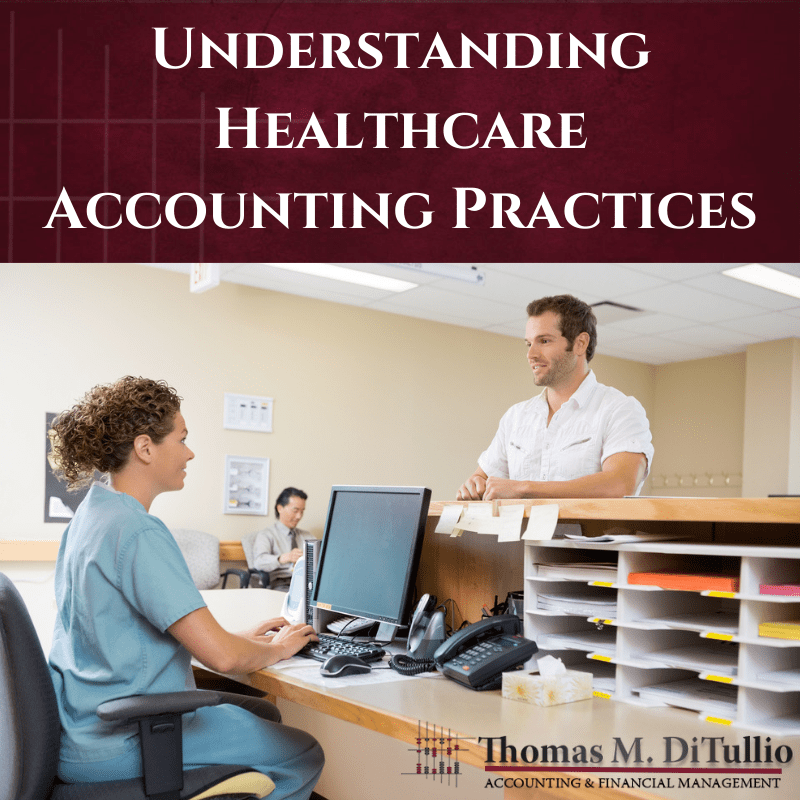What Are The 5 Types Of Accounts In Accounting?
Documenting the financial information for your business can help you understand your profits, costs, and overall value. By reviewing your accounts, you will know your company’s financial health and make plans for the future. There are several types of accounts that can help with this task. If you are ready to have a clearer outlook on your financial picture, let’s look at the five types of accounts found in accounting.
What Is an Account?
In basic terms, an account is a specific record in your balance sheet or financial ledger. These reports will document the financial activity in your business, such as verifying cash on hand or reporting daily transactions. Companies will use several accounts to keep track of their financial records. Some of the most common accounts include assets, expenses, liabilities, equity, and income. These accounts are used for different purposes, and you must update them daily or weekly.
Five Types of Accounts in Accounting
Now that you know about the most common account types, let’s take a deeper look at them.
1 – Assets
You must include your company’s tangible and intangible items in the asset account. For example, if you have business laptops, those are known as tangible assets. These are physical items. Design patents would fall into the intangible category. Intangible items do not take a physical form. Other tangible and intangible assets could include:
- Vehicles
- Equipment or machinery
- Property or office buildings
- Trademarks or copyrights
If you want to find the asset value of these items, gather a few pieces of information. First, you need to know the current value of your assets. For example, an antique store could have:
- $30,000 in cash
- $200,000 in property
- $400,000 in antiques
To find the value, use this simple formula:
- $30,000 + $200,000 + $400,000 = $630,000
By adding these values together, the antique store has an asset value of $630,000.
2 – Expenses
Another vital account focuses on those expenses. The expense account can include purchased services or products that helped generate income for the company. For example, some of these purchases may have helped boost the productivity of distribution or manufacturing operations. Common expenses can include:
- Marketing costs
- Employees salaries
- Facility costs
If your company sends employees on a business trip, you must document those costs in the expense account. However, you never want to include personal expenses in these accounts. Otherwise, you will need to separate these expenses, which can turn into a bookkeeping nightmare. Use this example to find your expenses:
A pet grooming company wants to calculate the value of its costs. First, the company needs to look at all of the expenses from the past year, including:
- $12,000 in pet shampoo and conditioner
- $1,000 in other grooming supplies
- $350,000 in employee salaries
- $1,000 marketing costs
- $24,000 facility costs
Add all those expenses together to find the value:
- $12,000 + $1,000 + $350,000 + $1,000 + $24,000 = $388,000
By looking at these values, the pet grooming company had $388,000 in expenses for the past year.
3 – Income
If you want to know whether you have a successful business or not, you must record your income. An income account records all of your company’s money from selling services or products. Some income accounts will even include business dividends from investments. Keep in mind that you should record actual investments in the asset account. An income account is a place where you will maintain all the data about the company’s profits. If you want to find the income value of a business, take a look at this example:
An industrial roofing company wants to calculate the income from the recent quarter. The sales are:
- $150,000 in roof installations
- $350,000 in new roof sales
- $79,000 in roof repairs
By adding all of those values together, they can find out the income value:
- $150,000 + $350,000 + $79,000 = $579,000
The most recent income from the quarter is listed at $579,000.
4 – Liabilities
The liabilities account will include payment obligations, outstanding debts, and other scheduled payments. Some examples of liabilities include:
- Account overdrafts
- Late utility bills
- Business loans
- Outstanding maintenance costs
Make sure to document all liability costs that apply to your business. When you record them, you need to account for any interest costs that can accompany these current liabilities. Take a look at this example:
A property management company wants to find its liabilities over the year. They owe:
- $500,000 in property mortgages
- $77,000 in business loans
- $600 in late utility bills
Once again, add these values to get the liabilities:
- $500,000 + $77,000 + $600 = $577,600
As you can see, the property management company has $577,600 in liabilities.
5 – Equity
Finally, we can look at equity accounts. These accounts show the value of your assets after you have deducted liabilities. The value can represent the current worth of your business. If you want to find the equity account’s value, you need to create a balance sheet with an itemized list of the assets and liabilities. Take the total costs of the liabilities and subtract that from the total assets. Once you have that figure, you can understand the current equity level of your business. Look at this example:
A delivery company wants to calculate its equity. Their liabilities and assets are listed as:
- $865,000 in assets
- $411,000 in liabilities
Subtract the liabilities from the assets to find the equity value:
- $865,000 – $411,000 = $454,000
The current equity value for this company is $454,000.
Keeping These Accounts Can Be Challenging
Even with the above examples, it can be hard to keep track of all accounts. Consider using small business accounting services. You will not have to figure out complicated formulas or try to manage records. All of that is handled for your business. Plus, you will know that these accounts are up-to-date with accurate records.
At TMD Accounting, our team has helped small and large businesses in Gloucester County with their accounting, bookkeeping, and tax needs. If you need an accountant for your small business, schedule a consultation by calling 856-228-2205.












